Pancragen – 20MG
$60.00
Discount per Quantity
| Quantity | Discount | Price |
|---|---|---|
| 5 - 8 | 5% | $57.00 |
| 9 + | 10% | $54.00 |
Scientific Overview of Pancragen
Pancragen, also referred to as KEDW and DWa (amidate), is a synthetic tetrapeptide derived as a structural analog of peptides originally studied from pancreatic tissue. It has been investigated for its potential influence on cellular differentiation, transcriptional regulation, and aging-associated biological processes within pancreatic research models. Explorations have focused on how it may interact with gene expression patterns and molecular markers associated with pancreatic functionality and broader metabolic pathways.
Pancragen Studies and Research Data
Investigations in Aging Models
Experimental observations suggest that Pancragen may be connected to biomarkers often associated with biological aging. Reports have noted decreases in caspase-3 and cathepsin B activity, along with shifts in TNF-α and IGF-I levels. These findings imply that Pancragen’s actions could be linked to cellular stress modulation and longevity-related molecular pathways. Some rapid aging models have also proposed a potential normalization of glucose levels, hinting at possible roles in metabolic stability during age-related decline.
Pancragen Observations in Metabolic Research
Studies in experimental models have proposed that Pancragen may play a role in carbohydrate metabolism. Some data indicate a lowering of fasting glucose levels and improvements in glucose tolerance dynamics. Other work has described potential influences on plasma insulin and C-peptide regulation, with improvements that appeared to persist after discontinuation in certain laboratory models. Additional investigations have suggested it may also be relevant to endothelial adhesion markers, particularly in settings of chronic hyperglycemia.
Cellular Differentiation Studies
Research on pancreatic acinar and islet cultures has suggested that Pancragen may interact with the expression of transcription factors such as Ptf1a, Pdx1, Pax6, Foxa2, Nkx2.2, and Pax4. These molecules are considered important for pancreatic cell maturation. Reports indicate that Pancragen may up-regulate some of these factors in aging cultures, potentially contributing to more youthful cellular profiles in vitro. Other findings propose that this influence might extend to structural proteins and molecular markers tied to cellular vitality.
Pancragen Explorations into Gene Regulation
Pancragen has also been investigated for its potential role in epigenetic regulation. Studies suggest it may influence methylation patterns of key genes such as PDX1, PAX6, and NGN3, which are linked to pancreatic development and function. Observed changes in methylation did not always align directly with expression shifts, suggesting that its role in transcriptional control may involve additional mechanisms not yet fully clarified.
Conclusion
Pancragen research has centered on its potential influence on pancreatic cell differentiation, metabolic pathways, and aging-related markers. Experimental findings highlight interest in its possible roles in glucose regulation, apoptotic protein balance, and gene methylation dynamics. While the body of research suggests several intriguing directions, continued laboratory study remains necessary to deepen understanding of its significance.
References
- Khavinson, V. K.h, Sevost'ianova, N. N., Durnova, A. O., Lin'kova, N. S., Tarnovskaia, S. I., Dudkov, A. V., & Kvetnaia, T. V. (2012). Advances in gerontology = Uspekhi gerontologii, 25(4), 680–684.
- Khavinson, V. K.h, Gavrisheva, N. A., Malinin, V. V., Chefu, S. G., & Trofimov, E. L. (2007). Effect of pancragen on blood glucose level, capillary permeability and adhesion in rats with experimental diabetes mellitus. Bulletin of experimental biology and medicine, 144(4), 559–562. https://doi.org/10.1007/s10517-007-0377-3
- Khavinson, V. K.h, Durnova, A. O., Polyakova, V. O., Tolibova, G. H., Linkova, N. S., Kvetnoy, I. M., Kvetnaia, T. V., & Tarnovskaya, S. I. (2013). Effects of pancragen on the differentiation of pancreatic cells during their ageing. Bulletin of experimental biology and medicine, 154(4), 501–504. https://doi.org/10.1007/s10517-013-1987-6
- Ashapkin, V. V., Linkova, N. S., Khavinson, V. K.h, & Vanyushin, B. F. (2015). Epigenetic mechanisms of peptidergic regulation of gene expression during aging of human cells. Biochemistry. Biokhimiia, 80(3), 310–322. https://doi.org/10.1134/S0006297915030062
- Goncharova, N. D., Ivanova, L. G., Oganyan, T. E., Vengerin, A. A., & Khavinson, V. K. (2015). Advances in gerontology = Uspekhi gerontologii, 28(3), 579–585.
- Korkushko, O. V., Khavinson, V. K.h, Shatilo, V. B., Antonyk-Sheglova, I. A., & Bondarenko, E. V. (2011). Prospects of using pancragen for correction of metabolic disorders in elderly people. Bulletin of experimental biology and medicine, 151(4), 454–456. https://doi.org/10.1007/s10517-011-1354-4
- Kvetnoi, I. M., Ryzhak, A. P., Kostyuchek, I. N., & Tafeev, Y. A. (2007). Effect of tetrapeptide pancragene on functional morphology of the pancreas in rats with experimental diabetes mellitus. Bulletin of experimental biology and medicine, 143(3), 368–371. https://doi.org/10.1007/s10517-007-0114-y
- Khavinson, V. K.h, Gapparov, M. M., Sharanova, N. E., Vasilyev, A. V., & Ryzhak, G. A. (2010). Study of biological activity of Lys-Glu-Asp-Trp-NH2 endogenous tetrapeptide. Bulletin of experimental biology and medicine, 149(3), 351–353. https://doi.org/10.1007/s10517-010-0944-x
Disclaimer:
The products mentioned are intended solely for laboratory research and in-vitro experimentation. They are not approved for human or animal use of any kind. All details provided are for educational purposes only. By purchasing from this site, you agree to comply with our Terms and Conditions.
Only logged in customers may leave a review.
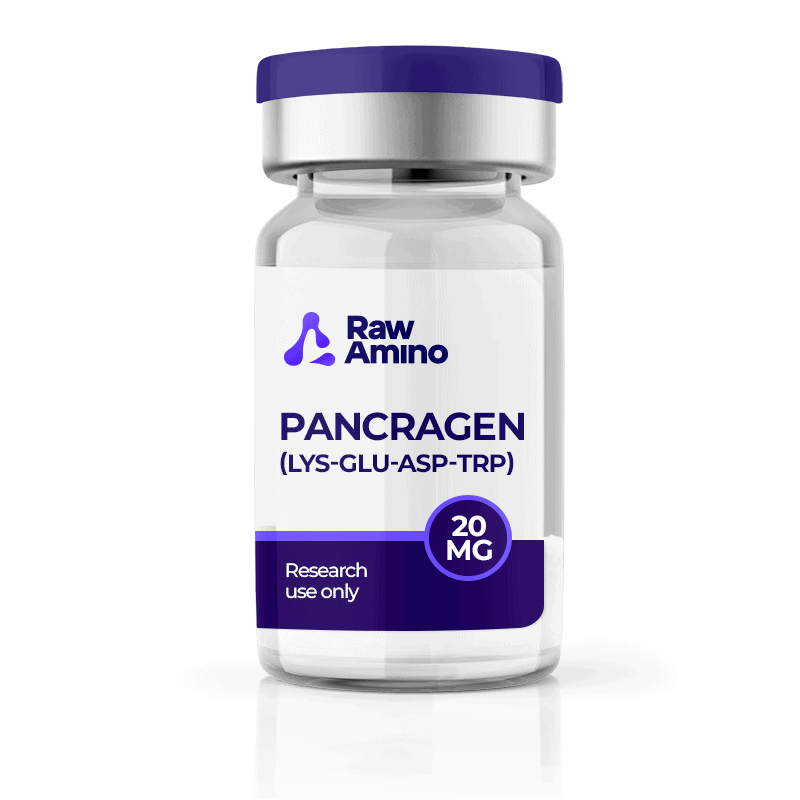
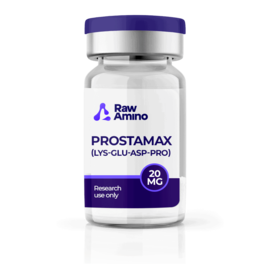
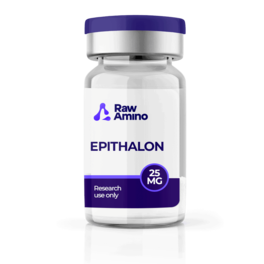
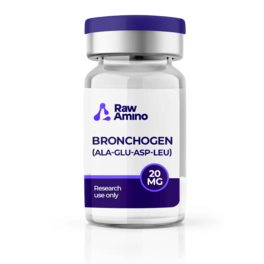
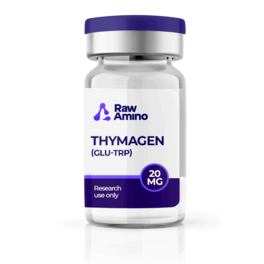
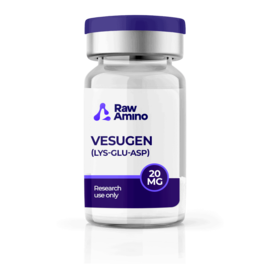
Reviews
There are no reviews yet.